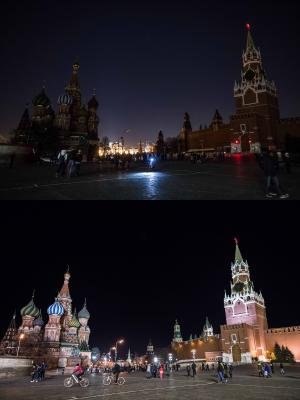Beijing, March 29 (IANS) The annual observation of Earth Hour took place this year in a digital form in various places across the world due to the ongoing coronavirus pandemic.
Initiated by the World Wildlife Fund (WWF) in 2007, the Earth Hour has become a popular movement worldwide, reports Xinhua news agency.
Held every last Saturday in the month of March, individuals, communities, enterprises and government departments around the globe are encouraged to turn off their lights for an hour, with the purpose of inspiring reflections and actions regarding environmental issues.
At 8.30 p.m. on Saturday evening in Moscow, the facade lighting of the Kremlin was turned off and so was the external lighting of the Russian White House, as part of the global environmental event.
Indonesia also joined the movement on Saturday evening but without traditional gatherings to avoid the spread of novel coronavirus. Awareness calling for serious efforts to slow down the global warming were relayed online.
“Through the participation in this Earth Hour and the voice for planet movement, we have helped world leaders make a decision to support improvement in the health sector and earth protection as well as the welfare for all the living things,” said Lukas Adhyakso, acting CEO of the World Wildlife Fund (WWF) Indonesia.
Due to the pandemic, restaurants or museums were closed in Hungary. However, the lockdown did not stop people from joining the Earth Hour movement. They too observed it in a digital way.
“In the midst of the coronavirus epidemic, the Earth Hour is also a sign of solidarity for the planet: communities around the world are organizing their events digitally. WWF is also relocating this year’s Earth Clock to the online world,” WWF Hungary told Xinhua.
Kenya on Saturday also leveraged digital platforms to raise visibility on the green agenda to mark the Earth Hour during the curfew.
Partners and stakeholders were encouraged to stay at home and use digital tools like Skype and mobile phones to sensitize the public on the need to adopt sustainable lifestyles.
Mohamed Awer, CEO of WWF Kenya, said the event highlighted the need for the east African nation to accelerate low carbon development while supporting ongoing efforts to contain the highly contagious disease.
The Earth Hour will always remain a people-led movement to raise awareness on sustainable practices that communities should adapt to reduce global warming, he added.
–IANS
ksk/
